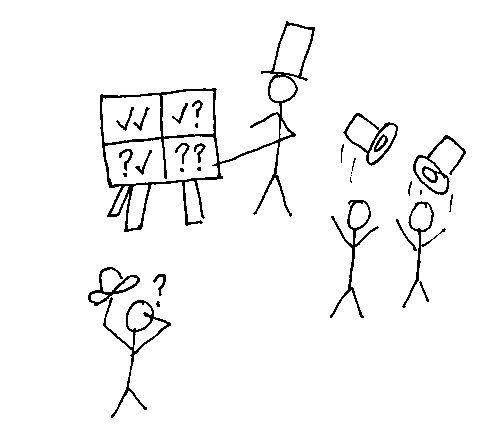8. - Uknown Unknowns
How sure are we of our engineering 'certainties' and what about those alligators we didn't even know were in the swamp?
Unknown US Engineer, circa 1969
Donald Rumsfeld came in for a lot of mockery when he said what every good engineer knows:
"Reports that say that something hasn't happened are always interesting to me, because as we know, there are known knowns; there are things we know we know. We also know there are known unknowns; that is to say we know there are some things we do not know. But there are also unknown unknowns - the ones we don't know we don't know"Similar statements have been made by others in the past - this recorded in 1969
"Known unknowns are things we know we don't know, but unknowns are things we don't
know we don't know and while we can't predict them because they're unknown unknowns, we're aware they're out
there."
"Doing a multi-billion-dollar project, there are things you don't even know you don't know."

The really sad thing is that the clever, supposedly literate, arts graduates that control the media and most of the political world see such comments as ripe for mockery, rather than clear, vital truth.
In the 1970s Standard Telephones & Cables in the UK were probably quite advanced in having a 'freethinker', a man with no staff but held in great respect by anyone wise enough to spend the time to read his various papers. One topic he covered was the use of redundant processors for controlling telephone exchanges. The theory of triple-redundancy suggested that three processors could check each other and by majority voting shut out a faulty processor if necessary. But how does one guarantee that the voting logic is working? How does one deal with common-mode errors?
Of course it is not just the 'hardware' or 'software' for that matter whose 'certainty' we are right to question. Many a pilot has got lost or even crashed once they lose confidence in their instruments or their own sense of position.
